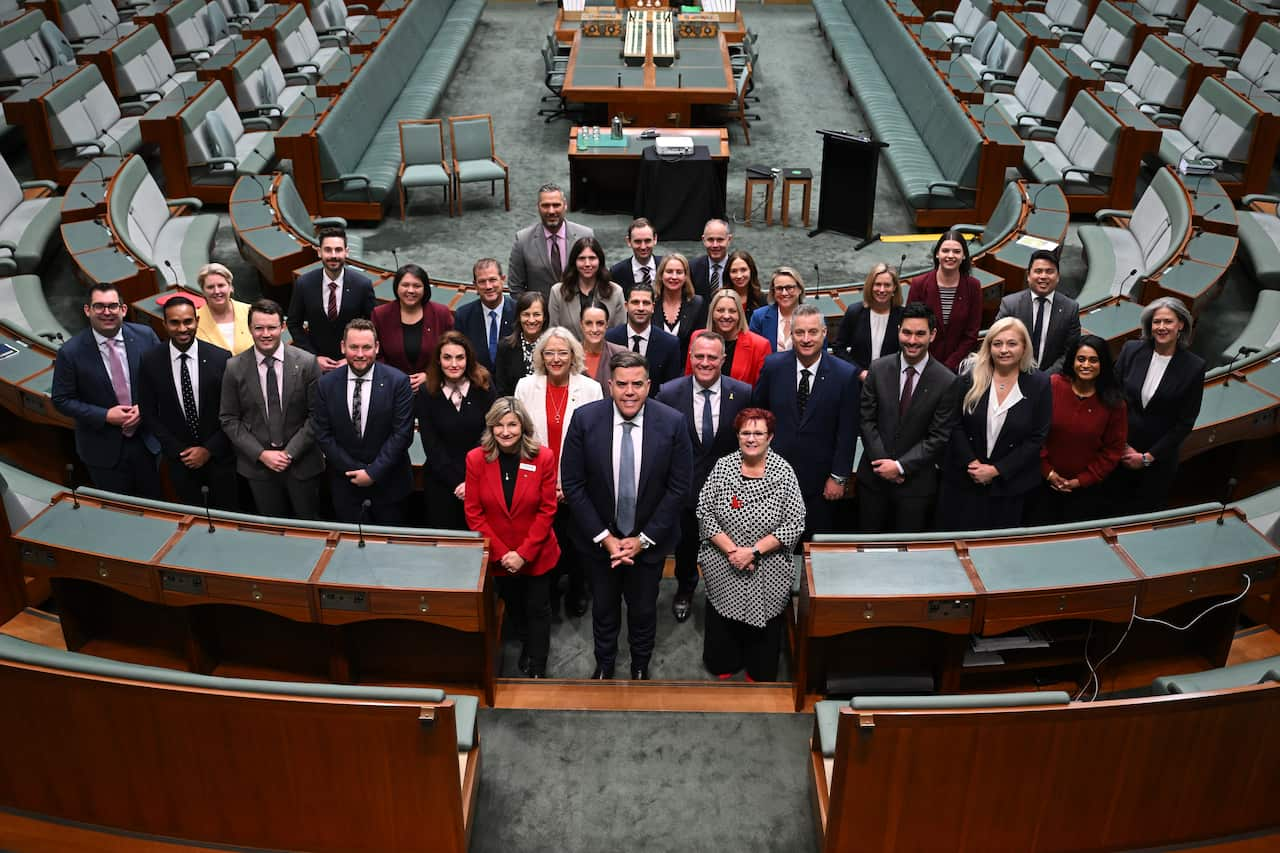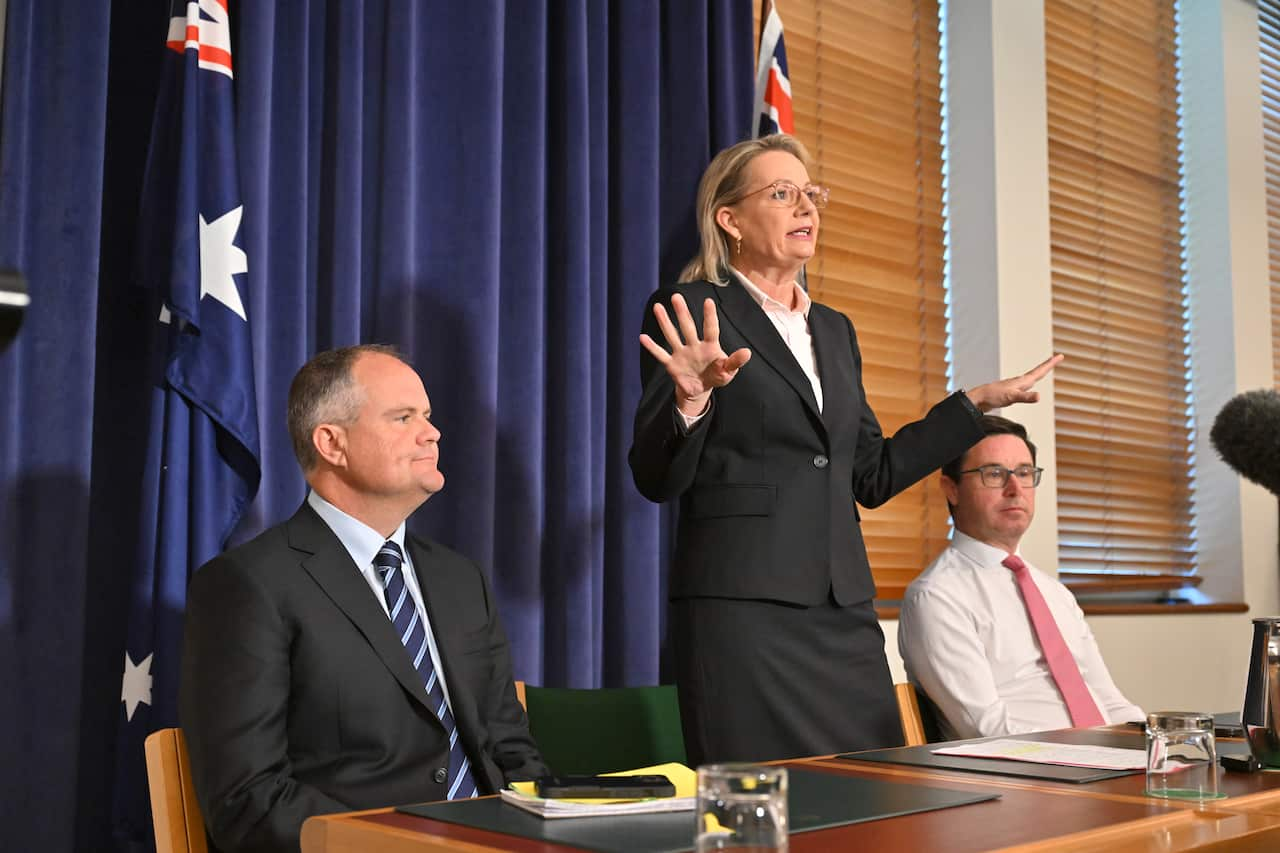Labor's honeymoon period continues this week as a large cohort of new politicians joins the 48th parliament, ready to implement the mandate Australians voted for.
Tuesday will largely be ceremonial before parliament resumes on Wednesday, and with it, a marathon of first speeches across several days, with 40 new senators and MPs to be sworn in.
With an increased majority, holding 94 of 150 lower house seats, Labor will have 24 new MPs deliver their opening addresses.

First up will be "leader slayers" Ali France and Sarah Witty, who ousted former Liberal leader Peter Dutton and former Greens leader Adam Bandt, respectively.
Amid the formalities, the re-elected government now faces pressure to deliver the priorities it set out during the election.
All eyes will also be on Question Time as Prime Minister Anthony Albanese adjusts to a new opponent in the House of Representatives chamber, with Liberal leader Sussan Ley taking her place across from him.
So what can we expect from the major parties?
LABOR
The Albanese government has made its first sitting fortnight agenda clear: wiping student debt, increasing safety measures for children in childcare and protecting penalty rates.
Labor will introduce a bill cutting student debt by 20 per cent retrospectively from 1 June, slashing roughly $16 billion from balances, amid wider reforms to the repayment system.
The legislation should be passed quickly, breezing through the lower house where Labor holds a majority, and the upper house, where the Greens are expected to vote for the changes.
While childcare subsidies were pivotal to the election campaign, horrific allegations of child abuse across centres have made safety reform a priority.
Speaking to Labor Party caucus on Monday, Albanese said he hopes to "restore confidence in a system in which we should be confident caring for our vulnerable little ones".
The Albanese government has vowed to strengthen protections, increase fines for poor quality operators and establish an independent regulator as part of the childcare centre reforms.
Labor also plans to enshrine penalty rates into law, protecting about 3 million workers who rely on the extra pay.
THE COALITION
After a short-lived split in May, the Liberal and National parties are adamant that they are back together, united and ready to hold Labor accountable with a strong opposition.
New Liberal leader Sussan Ley sought to boost morale on Monday after May's election loss, firing up the Opposition caucus with vows not to "get out" of Labor's way.
"Mr Albanese is giving interviews and suggesting we should just get out of the way. We will not," Ley said.

She singled out cost-of-living relief as a key issue to prosecute, as well as fighting against raising taxes, after ABC reported leaked documents show Treasury advised the government to raise taxes and cut spending after the election.
"I have not met a single Australian who wants to pay more tax, who thinks they are paying not enough tax," she said.
"What I do know is that every single Australian expects this government to minimise their tax bill, to work hard for them and to make sure that they run a responsible budget with responsible economic management across the country."
While the Opposition's policies are still under review following the election, education spokesperson Jonathan Duniam conceded the pitch to cut international student numbers by 80,000 "wasn't as constructive as it could have otherwise been".
"I think we need to have a proper and open discussion with both the university sector and the community more broadly about how we can approach this," he told ABC's Insiders program on Sunday.
THE GREENS
Similarly to the Coalition, the Greens are finding their feet under new leadership with Larissa Waters now at the helm.
With the balance of power in the Senate, the Greens will be crucial to Labor passing its agenda.
Senator Jordon Steele John has indicated the party may use the power to pressure Labor to review policies, like adding dental to Medicare.
While points of contention remain unclear, Senator Sarah Hanson-Young stressed the party will be "constructive" as it scrutinises the bills introduced to parliament.
"They don't have the numbers in the Senate, and that is because the Australian people want to make sure the Senate is a backstop for them, an insurance for them," she told reporters on Monday.
"And the Greens take that responsibility very, very seriously."

